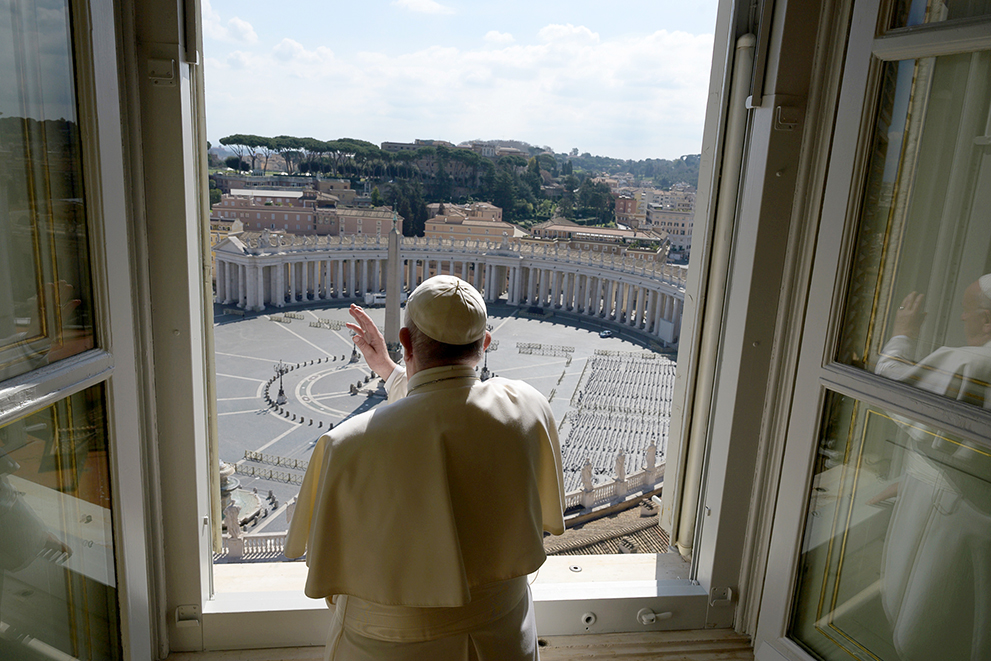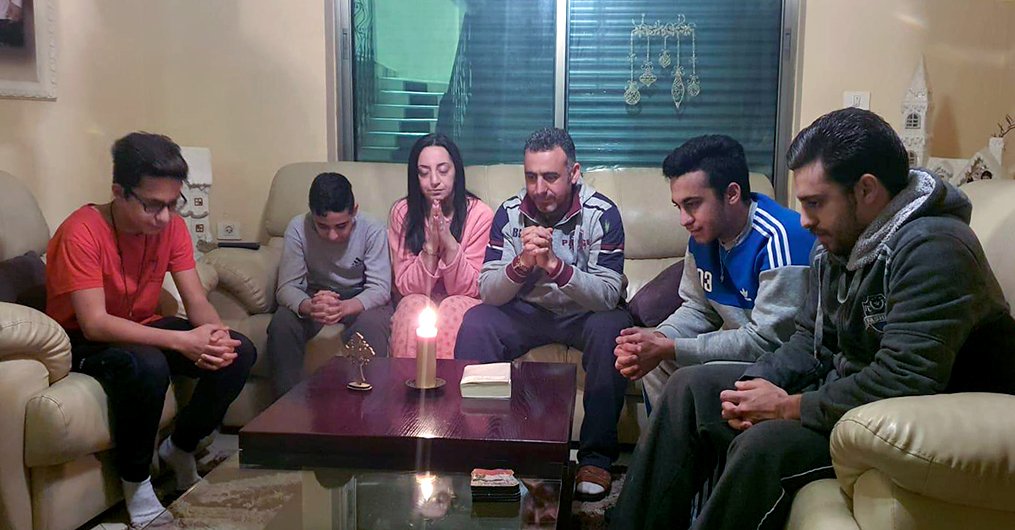

These are strange days. As Americans, we are used to our freedom, which allows us to do what we like, when we like it — even to our own detriment. No questions asked.
So, when we find ourselves in this time of restricted freedom, it feels deeply unfamiliar, upsetting and even wrong.
But as the fight against the invisible threat of COVID-19 rages around us, here we are: inconvenienced, restricted and, for some of us, alone. And the best thing we can do for ourselves, our loved ones and our neighbors is to stay put.
This means that many of our regular routines will have to change as much as humanly possible. It means that conveniences we have come to know, love and expect as our birthright will be severely limited. It means that we will not be able to lead with “I want” but rather “we need.”
For Catholics, this is both innate and inconceivable.
It’s innate in that loving our neighbor as ourselves goes to the very heart of what it means to be a Christian. We are meant to put “we need” — the common good — ahead of “I want.” At this moment in time, we are called to restrict our own actions — in every possible way — for the good of others, especially the most vulnerable. The spread of the disease is exponential, and even those who have mild symptoms — or no symptoms at all — may greatly harm others.
In an episode of The New York Times podcast, “The Daily,” Donald McNeil Jr., a Times reporter who has covered infectious diseases for decades, explains clearly what’s at stake.
“Do you have a parent? Do you have a grandparent? Do you want to be the vector that carries that disease to them? Do you know anybody and love anybody who’s older and might be frail? You don’t want your last memory of that person being that you gave them the virus that killed them. You’ll kick yourself for the rest of your life if you did that.”
That should be enough to make any person of goodwill understand what is at stake — and act accordingly.
But, yes, some restrictions we now face are inconceivable. In an attempt to do the least harm, most public Masses have been suspended. To say this is painful for many who have come to expect and rely on receiving Jesus daily or weekly during the celebration of the Eucharist is an understatement. It seems unfathomable that, in the midst of Lent, with Easter approaching, we might be physically separated from our Lord.

It is our consolation, then, that the Lord is never separated from us. We are reminded that where two or three are gathered, He is there with us. For those of you reading this, that includes you. You are a part of Our Sunday Visitor’s community, and Jesus is present with you at this very moment and always. You are not alone.
In her comments at the White House briefing March 16, Dr. Deborah Birx, White House coronavirus response coordinator, said: “The only thing we have right now is the amazing ingenuity and compassion of the American people.
“We’re appealing to all Americans to take … steps to protect each other and to ensure that the virus doesn’t spread,” she added. “They will only work if every American takes this together to heart and responds as one nation and one people to stop the spread of this virus.”
Because of a deadly virus, we are unable to participate in Mass in this country and around the world. We likely will reach a point where we won’t even be able to enter churches. Do not let these drastic measures be in vain. Stay home if you can. Keep your families home. Take every precaution. We are all in this together. Each one of us has a responsibility to the common good, and every decision we make has the potential to impact both ourselves and others — for good or for ill.
This unsigned editorial first appeared online March 17 on the website of OUR SUNDAY VISITOR, a national Catholic newsweekly based in Huntington, Indiana. It was written by the editorial board. The views or positions presented in this or any guest editorial are those of the individual publication and do not necessarily represent the views of Catholic News Service or of the U.S. Conference of Catholic Bishops.





